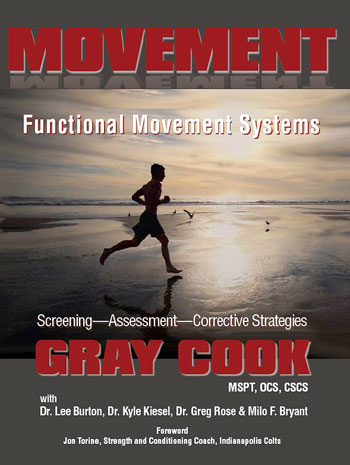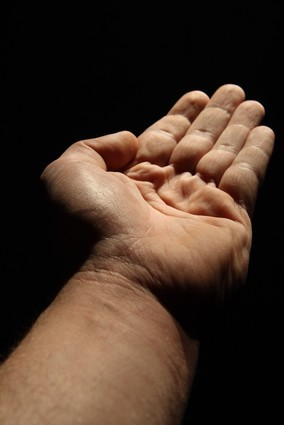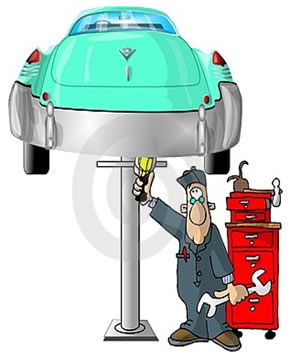
Some people don’t do what they’re told, and others only do what they are told.
Both are problems.
Posted by Boston Sports Medicine and Performance Group on Wed, Jan 12, 2011 @ 07:01 AM

Some people don’t do what they’re told, and others only do what they are told.
Both are problems.
Topics: Basketball Related, Art Horne, basketball resources, basketball conference, basketball training programs, athletic training conference, boston hockey conference
Posted by Boston Sports Medicine and Performance Group on Mon, Jan 10, 2011 @ 07:01 AM

Too good not to share....
This article originally appeared on ESPN.com - TrueHoop by Henry Abbott on 1/3/11
So, it's a new year, and thanks to the power of resolutions, the gym is crowded again.
All these people who have not worked out in a long time are back at it, for now.
Doesn't that picture worry you just a little? All that sedentary living, followed by a frenzy of playing hoops again, or running, or spinning or whatever ... that's like an injury waiting to happen. Muscles and tendons and joints that have been aging without conditioning, now tested once more.
It's no wonder that every advertisement pushing workouts includes the line about consulting a physician before beginning an exercise regimen.
But this is what strikes me: Really? You need a doctor's note to exercise?
Isn't that entirely backwards? Shouldn't you need a doctor's note to sit on the couch instead?
In other words, if you don't exercise for six months, then sprain your ankle playing hoops one time, it's the sitting that needs to stop, not the hooping. Right?
These days, we spend the vast majority of our lives sitting still in the dim light, or lying down, watching screens. And you can make a pretty strong case it's killing us.
We're descended from people who moved their bodies just about all day every day to stay alive. They got tons of sunlight. If you believe Christopher McDougall's thesis in "Born to Run," at a key stage in human evolution, our ancestors literally chased animals all day -- until the deer dropped from exhaustion. Imagine whole families together, including the children and the old people -- running one ultramarathon after another, for survival.
Now imagine getting those people, or their descendants, to sit in the car, at the desk, or on the couch all day. They'd go nuts! They'd have obesity, heart disease, diabetes, depression, and all the other leading killers in modern society.
So hell yeah, let's get out there. Let's honor those New Year's resolutions. Let's move these bodies that were meant to move. And when you find yourself slipping, a month or two from now, and thinking about spending less time in the gym and more time on the couch ... cal
Topics: Basketball Related, Art Horne, basketball performance, basketball resources, basketball conference
Posted by Boston Sports Medicine and Performance Group on Thu, Jan 6, 2011 @ 08:01 AM

I ran into an old friend a few weeks ago and asked him what he did for screening at the end of his soccer season as I was looking to improve on our year end procedure.
“What do you mean?” he asked, “once the fall season is done I don’t really think about them until next fall again – maybe a few post-season surgery follow ups but that’s it.”
Puzzled, I asked,
- How do you know what specific weaknesses each athlete should work on individually during the spring and summer to avoid injury next fall?
- How do you know if your rehabilitation programming was successful? Did the athlete with the ankle sprain ever regain their single leg hop test distance (oh, I guess you have to measure that to be able to compare)
- How do you know if your strength program lowered the team’s injury rate from previous years? Did it maintain lower extremity strength and power over the course of the season?
How do you know where you’re going if you don’t know where you are to begin with?
Art Horne is the Coordinator of Care and Strength & Conditioning Coach for the Men’s Basketball Team at Northeastern University, Boston MA. He can be reached at a.horne@neu.edu.
Topics: Basketball Related, Art Horne, basketball resources, boston hockey summit, boston hockey conference, basketball videos
Posted by Boston Sports Medicine and Performance Group on Wed, Jan 5, 2011 @ 07:01 AM

How closely are you looking at your athletes?
"Loss of mobility is sometimes the only way the body can achieve a point of stability, but that stability is not authentic. It is often seen or observed as stiffness or inflexibility, but on a sensory motor level, it is part of a system with no other available choice. It is basically engineered dysfunction at a local level to allow continued physical performance at a global level."
Pg. 27. Movement by Gray Cook.
Topics: Basketball Related, Art Horne, basketball resources, basketball conference, boston hockey summit, Gray Cook, Movement
Posted by Boston Sports Medicine and Performance Group on Mon, Jan 3, 2011 @ 06:01 AM

Topics: Basketball Related, Art Horne, basketball conference, athletic training conference, boston hockey summit
Posted by Boston Sports Medicine and Performance Group on Wed, Dec 22, 2010 @ 07:12 AM

I've never once heard after a lost basketball game an athlete use the word "I".
"I" is just too tough to swallow.
It's always the ref's blown call, the coach's bad substitution or a teammates ill advised shot, but never "I".
It's not because the actual word is difficult to say, it's just that it's much easier to look outward, look at other people's mistakes and other peoples shortcomings.
"U" is just a lot easier to say than "I".
Yes, maybe it was someone elses mistake, and yes maybe the ref should have given you that call, or maybe, just maybe, you're just making excuses.
"I" is tough to swallow. But continuing to lose by making the same mistakes tastes a whole lot worse - on the basketball court and in life. Confronting the brutal facts, no matter what situation you may be in is always the first step to creating a better "U".
Art Horne is the Coordinator of Care and Strength & Conditioning Coach for the Men’s Basketball Team at Northeastern University, Boston MA. He can be reached at a.horne@neu.edu.
Topics: Basketball Related, Art Horne, basketball performance, basketball conference, athletic training conference
Posted by Boston Sports Medicine and Performance Group on Tue, Dec 21, 2010 @ 07:12 AM

I asked a friend at work the other day to help me solve a problem that has been affecting our department.
"Sorry" he said, "that's above my pay grade."
If you continue to refuse to take on responsibilities that are above your pay grade, when do you ever get the chance to ever move into that pay grade?
Wouldn't it make more sense to work more now than you get paid, so you can eventually get paid more than you work?
Art Horne is the Coordinator of Care and Strength & Conditioning Coach for the Men’s Basketball Team at Northeastern University, Boston MA. He can be reached at a.horne@neu.edu.
Topics: Art Horne, basketball resources, basketball conference, basketball training programs, athletic training conference
Posted by Boston Sports Medicine and Performance Group on Tue, Dec 14, 2010 @ 07:12 AM

Some things are just worth the little bit of extra effort.
Yes, squeezing takes a little more planning, a little more time, and a little more work. But like freshly squeezed OJ, your extra effort certainly tastes better than the frozen from concentrate your competitors are serving.
Yes, the juice is certainly worth the squeeze.
Art Horne is the Coordinator of Care and Strength & Conditioning Coach for the Men’s Basketball Team at Northeastern University, Boston MA. He can be reached at a.horne@neu.edu.
Talk about effort is worth the result….
Topics: Art Horne, basketball performance, basketball training programs, athletic training conference, boston hockey summit, boston hockey conference, basketball videos
Posted by Boston Sports Medicine and Performance Group on Mon, Dec 13, 2010 @ 07:12 AM

99.9 percent of French adults are organ donors, compared to only 28 percent of Americans. It’s because in France, everyone is a donor by default. In most of the United States, it’s the opposite.
The expectation in France is that you’d be willing to donate an organ to someone in need. In the United States, the expectation is that if you want to donate an organ to someone in need you’ll take the effort to check that little box on your driver’s license.
A small difference in wording with a major difference in results.
Each fall, in college sports medicine rooms across the United States, we screen for height and weight, yet the majority of each day in the majority of Sports Medicine clinics across the country no one is having a height problem.
What if the NCAA instead put assessment of Movement Patterns as a default for pre-participation physicals alongside height, weight, BP and Pulse?
Shouldn’t a procedure that addresses and screens for the majority of problems our patients encounter worth considering?
Organ donation isn’t for everyone and should ultimately be decided on an individual basis, but like organ donation, movement screening may just save some of your student-athlete’s heartache down the road.
Art Horne is the Coordinator of Care and Strength & Conditioning Coach for the Men’s Basketball Team at Northeastern University, Boston MA. He can be reached at a.horne@neu.edu.
Topics: Art Horne, basketball performance, basketball training programs, boston hockey summit, boston hockey conference, basketball videos
Posted by Boston Sports Medicine and Performance Group on Fri, Dec 10, 2010 @ 07:12 AM

I was driving to work the other day when the engine heat indicator alarm went off on my dash board. Not being a car genius, but knowing enough to know I should see an expert that deals with engine problems I promptly pulled over and into the nearest auto garage. I explained to the mechanic that the engine heat alarm went off and he asked me to pop the hood so he could take a look.
“Wow, this engine is burning up” he explained to me as he held his hand over the engine block. “Thank goodness you pulled in here. You got here just in time – I can help you.”
He took out his tape measure, and extended it across and over the engine then quickly disappeared into his garage.
A few moments later he returned to my car carrying a huge piece of foam which he placed over the engine block. He then carefully pushed the edges down so the foam fit snuggly over the entire engine.
Slamming the hood down over the foam he instructed me to start the car up again and give er a try.
I started the car and walked back out to join him at the front of the car.
“See, no more heat” pointing me to place my hand next to his as he held it over the hood.
Sure enough – I didn’t feel any heat. Wow, this guy was good.
I completed my drive to work (for some reason the engine heat indicator was still going off, but I’m sure it will be fine, I mean I saw an expert who took care of the heat) where I told a co-worker of my pit stop at the garage. He quickly told me that I was an idiot and got ripped off by the mechanic as he never took care of the problem but instead, simply just covered it up.
“What do you mean?” I asked somewhat angered.
“Hold on one second – let me take care of this athlete and we’ll talk,” he explained pointing to an athlete on a treatment table.
He turned to the athlete and as he began discussing the athlete’s course of treatment I suddenly felt as though I was back at the mechanics…..
“Ok Johnny, so you’ve been really running up the miles and now your knee is hurting, you can tell it’s not doing well by the swelling around your knee cap and how warm it is. Let’s get some ice and e-stim on that right away, thank goodness you came in to see me, any later you could have really been in some trouble. A couple of treatments of ice and e-stim and you’ll be good to go”
____________________________________________________________________________________
I joke about this story with friends now because I was once the car mechanic. Not in a malicious cheating way – I just didn’t know how to solve the PROBLEM so I did my very best to help alleviate the symptoms – NSAIDS, ice, massage – kids felt better and I felt good about helping them. That is until they returned with the same problem again and again.
Solving problems is tough. It requires an investment of time and a little bit of extra effort. The plus side however is that once you’ve solved the problem, you’ll end up actually having more time on your hands because you won’t have patients returning with engine failure time and time again.
Art Horne is the Coordinator of Care and Strength & Conditioning Coach for the Men’s Basketball Team at Northeastern University, Boston MA. He can be reached at a.horne@neu.edu.
Topics: Art Horne, basketball training programs, athletic training conference, boston hockey summit, boston hockey conference, basketball videos, customer service, evidence based medicine
“The residents who live here, according to the parable, began noticing increasing numbers of drowning people caught in the river’s swift current and so went to work inventing ever more elaborate technologies to resuscitate them. So preoccupied were these heroic villagers with rescue and treatment that they never thought to look UPSTREAM to see who was pushing the victims in.”
Learn what is hurting your feet and your performance, and how to finally train your feet the way they were meant to be.
© 2020 Boston Sports Medicine and Performance Group, LLC